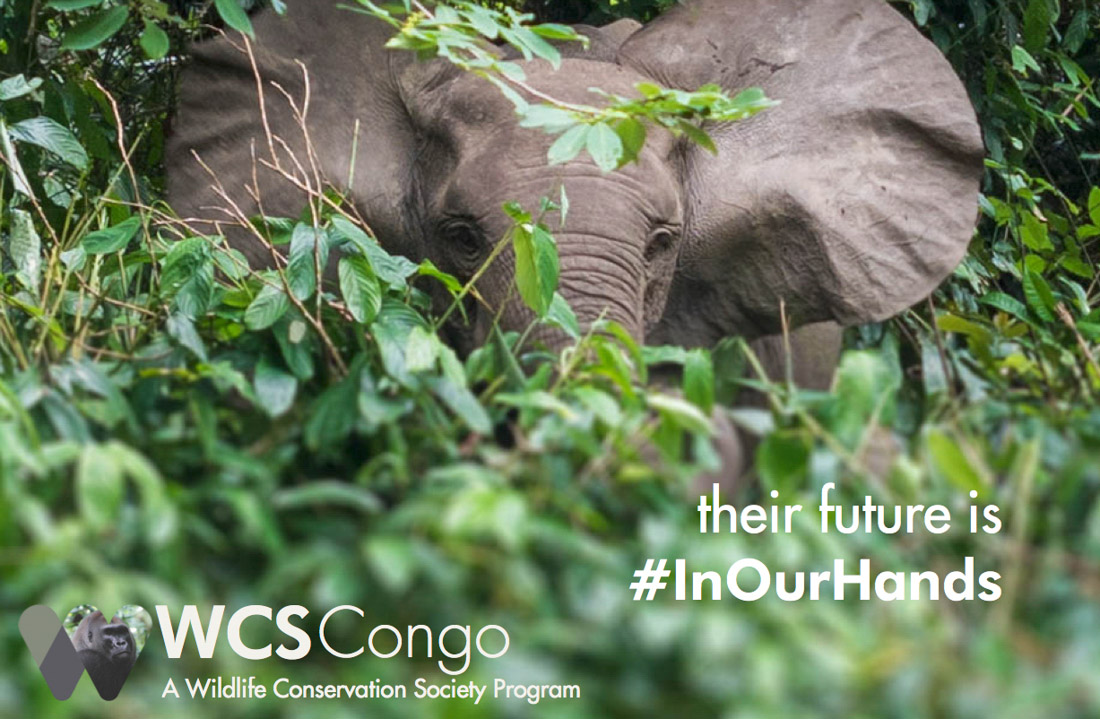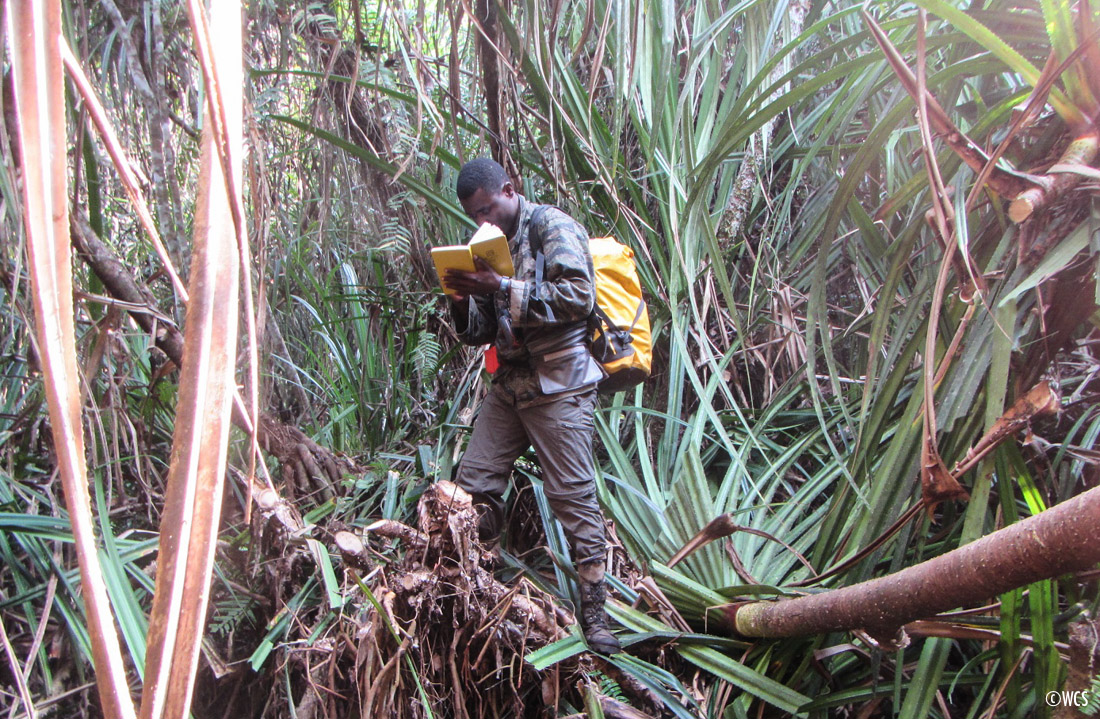
their future is in our hands
Today is World Wildlife Day, an opportunity to celebrate the incredible diversity of wildlife on our planet, but sadly also a day to highlight the imminent threat to the survival of many of these species. We find ourselves at a crucial point in history for the conservation of wildlife, with several iconic species on the brink of extinction. Last year in a speech broadcast on Chinese state television Britain’s Prince William said “Let us not tell our children the sad tale of how we watched as the last elephants, rhinos and tigers died out, but the inspiring story of how we turned the tide and preserved them for all humanity.” Aptly, in 2016 the theme for World Wildlife Day is the “Future of Wildlife is in our hands” with a focus on African and Asian elephants.
The Republic of Congo encompasses one of the last strongholds for forest elephants. The region’s elephant population is however coming under increasing pressure as expanding road networks take people deeper into once untouched forest, facilitating accessibility by hunters driven to kill elephants by the demand for ivory. WCS Congo is implementing a broad spectrum of conservation actions to combat the expanding threats to the country’s elephant population. Mindful of the fact that the future of the country’s natural heritage lies in the hands of the Congolese people, WCS Congo has long been a front-runner in building capacity in Congolese nationals and successfully uplifting Congolese citizens into conservation leadership positions.
”Let us not tell our children the sad tale of how we watched as the last elephants, rhinos and tigers died out, but the inspiring story of how we turned the tide and preserved them for all humanity.
The management of Nouabale-Ndoki National Park, a refuge for elephants in northern Congo, was recently transferred to the Ndoki Foundation, a partnership between WCS and the Government of Congo. Through this partnership representatives of local communities now have a place to discuss conservation issues with members of the board. “In this we have made big progress compared to some other protected areas in the Republic of Congo that don’t have this institution in place to be able to put all stakeholders around the table and discuss the best solutions for both the park and surrounding communities.” Mr Constantin Mbessa, President of the foundation, said at the most recent Foundation meeting.
At present a group of 15 Congolese researchers are walking through some of the most impenetrable forest in Africa with the aim of estimating the elephant population size and any changes in their population dynamics in the Ndoki landscape. The Ndoki-Likouala Large Mammal Survey team will walk hundreds of kilometers over the next year and a half collecting data in over 44,000 km2 of forest. The results of the continent wide Great Elephant Census recently carried out on savanna elephants brought to light drastic drops in elephant numbers in certain regions. The shock of these findings and the international attention they gained helped bolster conservation efforts in several areas that had been worst afflicted by poaching, such as southern Tanzania. In contrast to savannah elephants the plight of forest elephants is often hidden beneath the dense canopy of central and West Africa’s rainforests. This phenomenal survey effort will allow WCS and its partners to evaluate the population status and threats of large mammals and help evaluate and focus our efforts.

The team that is currently spending months at a time battling through the understory of northern Congo’s forests carrying out the Ndoki-Likoula survey is taking the future of wildlife into their hands. The transects they will be following do not stick to cleared pathways or deviate around particularly dense patches of bush, they are straight lines that the team must follow no matter what they come up against. Their work shows dedication to the cause of gaining knowledge that will be used to adaptively manage the conservation of elephants and their habitat in northern Congo. Watch this space for more on the team’s progress over the next 18 months…


Stephen Barth
What a job. Dedication. Glad all these things are moving forward